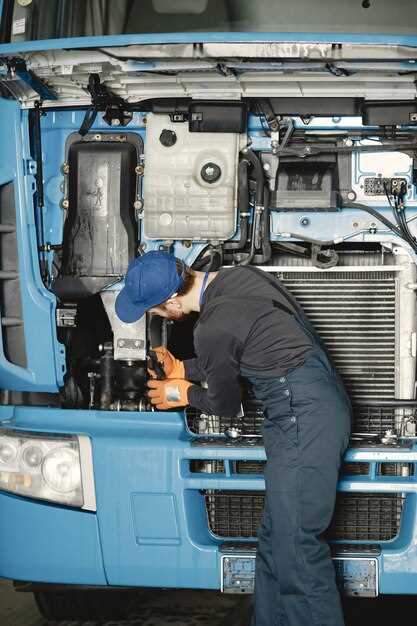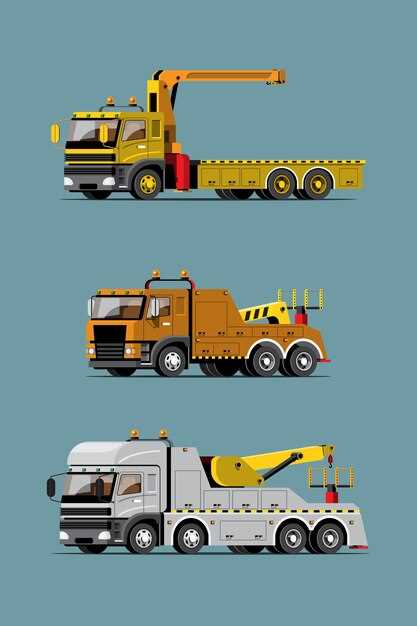
As we move into 2024, the demand for powerful and reliable heavy-duty trucks continues to rise, especially for those seeking optimal towing capabilities. Whether for commercial use or personal adventures, selecting the right truck can make all the difference when it comes to handling heavy loads with ease. This year, manufacturers have stepped up their game, delivering trucks equipped with advanced technology, enhanced towing capacities, and superior performance features.
Among the myriad of options available, certain models stand out as the best heavy-duty trucks for towing. These trucks not only boast impressive horsepower and torque but also integrate cutting-edge towing technologies that enhance safety and efficiency. From integrated trailer sway control to adaptive brake systems, these features ensure both the vehicle and trailer are managed effectively under various conditions.
In this article, we will explore the top contenders of 2024 for heavy-duty towing, examining their specifications, performance ratings, and unique features. Whether you’re transporting construction equipment, boats, or recreational vehicles, the right heavy-duty truck will provide peace of mind and unwavering power, making your towing experience seamless and stress-free.
Key Specifications to Consider for Towing Capability

When selecting a heavy-duty truck for towing, understanding key specifications is vital for ensuring optimal performance and safety. Here are the crucial factors to consider:
- Towing Capacity: This is the maximum weight a truck can safely tow. It is crucial to check the manufacturer’s specifications as it varies between models.
- Payload Capacity: Knowing the payload capacity helps determine how much cargo can be loaded in addition to the trailer. This affects overall towing capabilities and vehicle stability.
- Engine Power and Torque: A powerful engine with high torque ratings is essential for pulling heavy loads. Look for trucks with diesel engines that generally provide higher torque compared to gasoline engines.
- Transmission Type: An automatic transmission with a well-designed tow/haul mode can enhance towing efficiency. Consider models that offer multiple gears for better power distribution during towing.
- Rear Axle Ratio: A lower rear axle ratio can improve towing power but may affect fuel efficiency. Choose a ratio that balances both towing capability and daily driving needs.
- Braking System: Trucks equipped with robust braking systems, including integrated trailer brakes, provide better control and safety while towing. Look for features like anti-lock brakes and electronic brake-force distribution.
- Suspension System: A strong suspension system is crucial for maintaining stability when towing heavy loads. Consider trucks with heavy-duty suspension options designed specifically for towing.
- Trailer Hitch Ratings: Ensure that the truck’s hitch can handle the weight of the trailer and payload. Check for compatibility with different types of hitches (e.g., gooseneck, fifth-wheel).
- Cooling Systems: Effective cooling systems are essential to prevent overheating when towing. Look for trucks that include enhanced cooling features for both the engine and transmission.
- Cab and Chassis Configuration: Different configurations affect towing dynamics. Choose a cab and chassis setup that offers the best balance for your specific towing needs.
Evaluating these specifications will help you choose a heavy-duty truck that meets your towing requirements and ensures a safe and efficient experience on the road.
Comparative Analysis of Best Models for Heavy Loads
When evaluating heavy-duty trucks designed for towing in 2024, several key models stand out for their exceptional capabilities. This analysis focuses on three leading models: the Ford F-Series Super Duty, Ram 2500, and Chevrolet Silverado 2500HD. Each offers unique features tailored to meet demanding towing requirements.
The Ford F-Series Super Duty, especially the F-450 variant, boasts a maximum towing capacity of up to 37,000 pounds when properly equipped. It features a robust 6.7L Power Stroke V8 turbo-diesel engine, delivering impressive torque and optimized performance. Additionally, the advanced towing technology, including Pro Trailer Backup Assist, enhances control and maneuverability during towing.
Similarly, the Ram 2500 excels in heavy-duty towing with a maximum capacity of 19,780 pounds. Its 6.7L Cummins turbo-diesel engine provides substantial torque, ensuring that even the heaviest loads can be handled with ease. The truck’s air suspension system offers improved stability and comfort, making it well-suited for long-distance towing. The innovative RamBox cargo management system provides additional functionality for loading and securing tools and equipment.
On the other hand, the Chevrolet Silverado 2500HD features a robust towing capability of up to 18,500 pounds. Its 6.6L Duramax turbo-diesel engine is renowned for its reliability and performance. The Silverado offers a range of advanced towing technologies, such as the Advanced Trailering System, which includes pre-departure checklists and trailer light testing. This model’s high-strength steel construction provides enhanced durability, critical for heavy loads.
In conclusion, each truck model presents its strengths tailored to specific towing needs. The Ford F-Series Super Duty leads in maximum towing capacity and advanced towing assistance features. Conversely, the Ram 2500 offers superior comfort and stability, making it a reliable choice for extensive towing. The Chevrolet Silverado 2500HD delivers robust capabilities with efficient technology, ensuring a balanced option for heavy-duty towing tasks. Ultimately, the choice will depend on the specific requirements of the user and their towing expectations.
Maintenance Tips for Longevity in Towing Performance

Regular maintenance is essential for ensuring optimal towing performance in heavy-duty trucks. Start with consistent oil changes as the engine operates under increased strain while towing heavy loads. Follow the manufacturer’s recommendations for oil type and change intervals to ensure engine components remain lubricated.
Check the coolant levels and quality frequently. Overheating can lead to severe engine damage, especially during towing. Ensure your cooling system is clean and functioning properly, including the radiator, thermostat, and water pump.
Inspect the brakes regularly, as towing heavy loads increases brake wear. Replace brake pads and rotors as necessary, and keep the brake fluid at the proper level. Consider upgrading to heavy-duty brake components if you frequently tow large trailers.
Tires are critical for towing safety. Monitor tire pressure regularly and ensure lug nuts are torqued to specifications. Rotate tires as needed and inspect for signs of wear or damage, promoting even wear and enhancing traction.
Examine the towing hitch and attachments regularly. Make sure all bolts are tightened and components are free from corrosion or wear. Clean and lubricate the hitch to facilitate easy connection and prevent rust.
Regularly review the electrical systems, including lighting and trailer connections. Ensure all lights are functioning properly before towing, as visibility and safety are paramount. Inspect wiring for frays or damage that could compromise performance.
Conduct routine inspections of the drivetrain components, including the transmission and differential. Keep transmission fluid clean and at the correct level to avoid overheating and potential failure under load.
Maintain a clean truck interior and exterior to prevent rust and damage caused by road debris. Regular washing and waxing can protect the paint and components from environmental factors.
Lastly, keep a close eye on the weight of your loads. Overloading can lead to increased wear and potential failures. Always adhere to the truck’s towing capacity as specified by the manufacturer.




